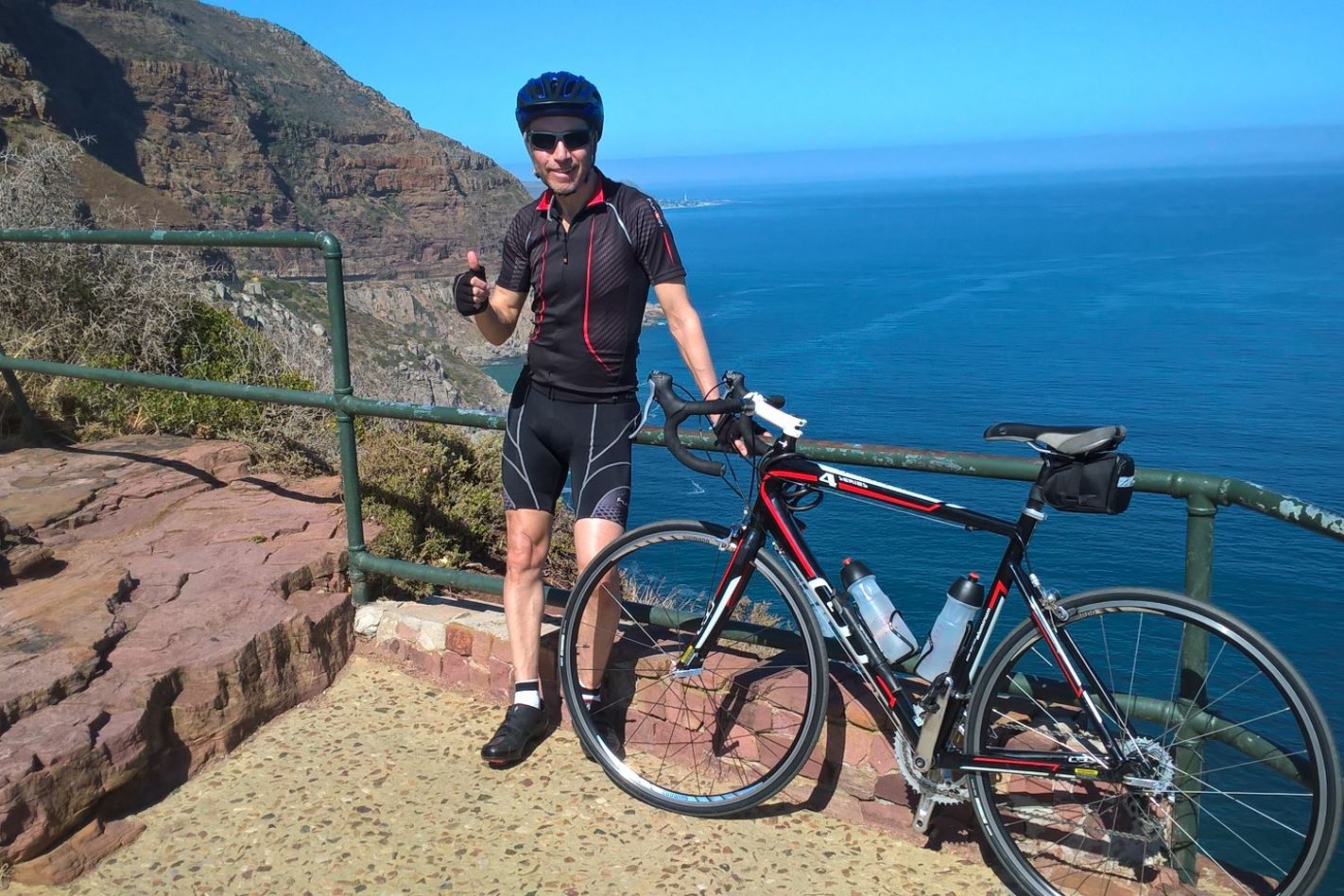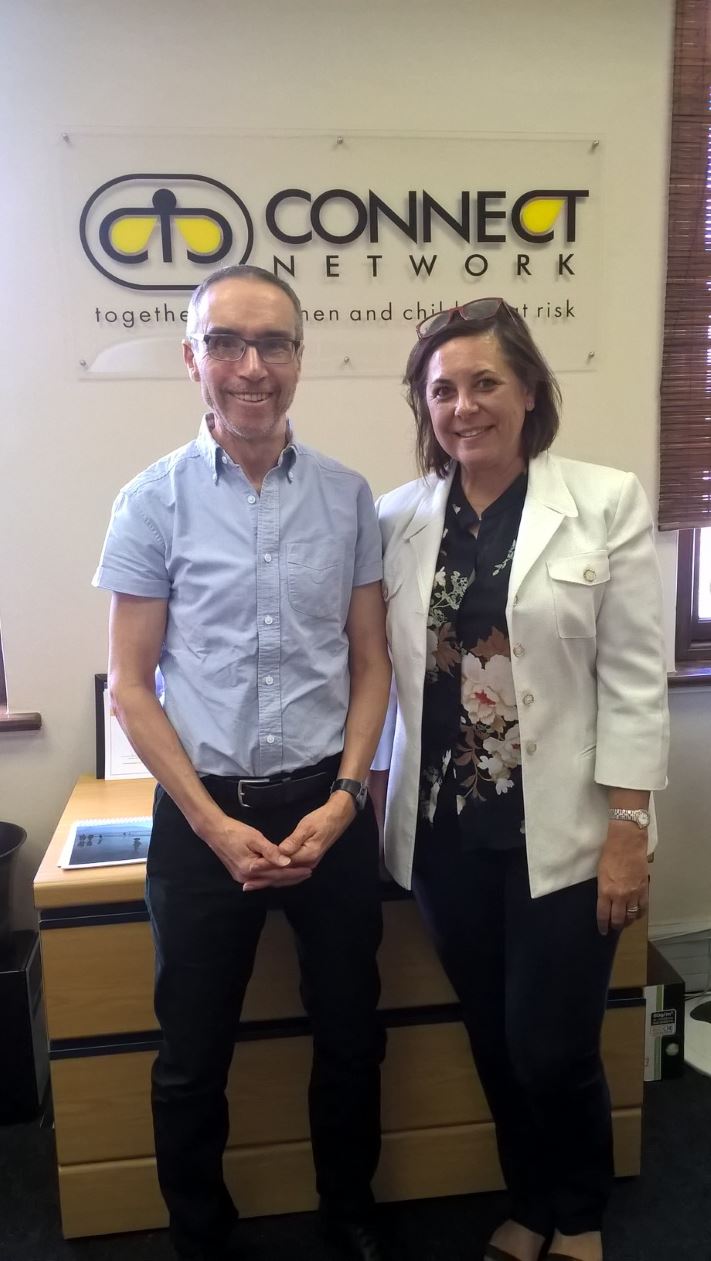27th March 2017
The first in a series of blogs by Dr Robert Nettleton, Education Advisor, Institute of Health Visiting, on his travels to Cape Town, South Africa through his Florence Nightingale Foundation Travel Scholarship 2017. Read his blog on being awarded the scholarship with a summary of what he was planning. The title of his project is “Clinical leadership for the 1001 critical days across boundaries in South Africa.”
He will be keeping us up to date with his travels and professional visits through regular Voices blogs – so keep a look out for Robert’s travel updates
I have had 4 days in South Africa. Next week it is a packed programme, but this week it’s a matter of ‘just’ getting used to my surroundings and ‘just’ one day of professional engagement.
‘Just’ getting used to my surroundings.
I hugely admire the way the social geographer Danny Dorling maps public health in its broadest sense by tracking journeys such as on the London Underground. I often think of this when I go on cycle rides at home through my old stomping ground as a health visitor, on through ‘the largest council housing estate in Europe’ and beyond into leafy Cheshire, the haunt of premier league footballers (one is told) and their prestigious homes. Well, I’ve had similar experiences here, cycling through the most stunning coastal scenery on my doorstep from the gated community where I’ve been given hospitality. But of course, the social gradient (as Michael Marmot describes it) here is as steep as some of the cliffs that rise from the ocean to the Table Mountain National Park. Yet, South Africa’s still relatively new constitution is defined by a vision of inclusion and equality. So how does this work out in practice?
Obviously, this is a huge question, but one of my inspirations to come to South Africa is the work of the child psychiatrist, Professor Astrid Berg. In her book ‘Connecting with South Africa’, she describes in intimate and thoughtful detail how she slowly came to ‘see’ the infant in a more profound and insightful way as a mirror of the relationships in which he or she was born, extending from the mother into the wider family and society (‘ubuntu’). This is entirely consistent with Bronfenbrenner’s ecological model of child development, but it has distinctive and deep African cultural roots to which, she candidly admits, she was at least partly blind. She gives credit to a colleague who shared this cultural heritage to facilitate her connection from her own culture, rooted in European descent and western medicine, to begin to effectly understand the nature of parental bonding and infant attachment in families experiencing social and cultural dislocation in the post-apartheid era. In some cases, this goes so far as to appreciate why and how an infant fails to thrive or may even die.
‘Just’ one day of professional engagement.
Dr Berg and her colleague Dr Anusha Lachman are co-leaders of the first postgraduate course in infant mental health, based on the above hard-won cultural understandings. On Thursday, I was privileged to give a two-hour seminar to the first group of students from diverse cultural and professional backgrounds who are all champions of infant mental health. They were eager to hear of the UK health visiting model in the context of wider services, the evidence base and the value of a universal inclusive service available to all, with tiered levels of response proportionate to need. There was great interest in the iHV’s influence on practice through training cadres of Champions of infant and perinatal mental health throughout the country, upskilling colleagues and facilitating care pathways to specialist services – aspirations shared by these students as champions. A challenge for them is to develop a sustainable quality of service and workforce capacity to some common standards.

Robert presenting to postgraduate students at Tygerberg Hospital with Professor Astrid Berg and Dr Anusha Lachman, and, in Robert’s words, “Classic error – caught looking at the screen!”
In the morning, I had visited Dee Moskoff, CEO of Connect Network. This network links and supports a host of not-for-profits (NPOs), especially from faith-based origins, working together with women and children at risk to promote safety and wellbeing of children and thriving families through collaborating together. Dee reminded me of many health visitors I know: she was a nurse and midwife who began to see a ‘bigger picture’ that needs to be influenced to transform the recurrent problems and needs affecting women and children in their communities. In the post-apartheid era, NPOs proliferated to respond to previously unrecognised need, mobilised around a vision for a more inclusive and equitable future. Innovation occurred allowing a ‘1000 flowers to bloom’. With this release of energy and endeavour also comes lack of coherence, integration and other risks of variability. Dee, as a leader amongst leaders, reminded me of the current emphasis in the UK public sector on ‘collective leadership’. According to the King’s Fund, Collective leadership means everyone taking responsibility for the success of the organisation as a whole – not just for their own jobs. It requires organisations to distribute leadership power to wherever expertise, capability and motivation sit within organisations.
This particular definition takes it as axiomatic that the ‘whole’ is an ‘organisation’, whereas health visiting and child public health more generally is better understood in relation to system leadership, or more widely or loosely again, network leadership. A concrete example of a key issue for Connect Network is the implementation of South Africa’s Children’s Act. While Dee considers that an excellent legislative framework is now in place, there is a long way to go for implementation to become a reality. So, Connect Network works to bring coherence through connecting and engaging with NPOs, equipping them with capacity building and facilitating collaboration as a mark of quality.
My reflection on this context is that while in the UK we have had many of these ‘ingredients’ in place for many years, e.g. local safeguarding boards, bodies charged with standards and improvement of services (CQC, OfStEd) and professions (NMC), presently in health visiting there are concurrent forces of integration AND fragmentation. The former is promoted and even required, but there are countervailing forces for the latter. For example, the four nations of the UK have differing expectations of the Healthy Child Programme (or its equivalent), notably the number of child health and development reviews; in England, a national core service specification has been superseded by ‘guidance’ for a host of local authority commissioners. The providers of services are changing rapidly and some of them will be either commercial or NPOs outside the NHS. This means that while ‘guidance’ supports an integrated 0-19 Healthy Child Programme in England, in some cases the service provider commissioned for 0-5 for a community is different from the provider of School Nursing for 5-19. In other cases, the pathway is being carved differently, such 0-7 and 8-19. This can be seen as the opportunity for innovation and responsiveness to local issues, or a threat to coherence and common standards.
Whatever the dynamics that characterise our context, collective leadership seems a critical requirement. Dee Moskoff quotes an African proverb: ‘if you want to walk fast, walk alone. If you want to walk far, walk together.’ To ‘walk together’ requires the capacity to connect. This brings me back to Astrid Berg’s emphasis on learning from the infant. She sees in the infant the opportunity to see the ‘small in the large’ and the ‘large in the small’. Each human being, universally, comes into the world ready for and seeking connection (wired for connection, we might say, from a neurological point of view). Whether this takes place depends on there being others who are available and responsive. Each human being also comes into the world with survival mechanisms of arousal, fight, flight or freeze. Beyond these most primitive or basic of mechanisms, to thrive as a human being is to find and make connection. What emerges for us in our first 1000 days or so reflects what we encounter, and flourishes if this is resourceful, responsive, consistent and open to the new possibilities that every life has. Health visitors are expert at (and only effective when) forming connections with families in their homes and communities. Collective leadership that draws on this core capability is an invaluable resource in our contexts of policy and practice. We can learn from attending to the infant something of the why and how of leadership. To practise collective leadership, we first have to be in relation.
Robert Nettleton



